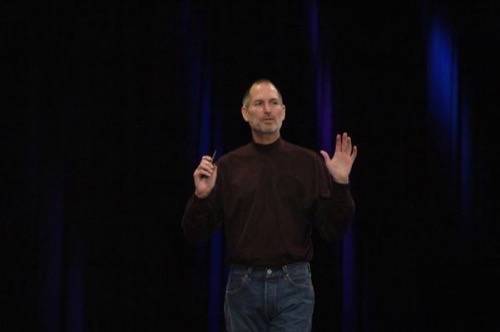
Macworld Expo, a once-groundbreaking conference that saw the launch of Wired magazine and the announcement of the iPhone, will not see its 30th birthday.
IDG World Expo, the event’s organizer, told Jason Snell of Six Colors that Macworld “is going on hiatus”—a pause that may well prove permanent. (IDG recently shut down the print edition of Macworld, where Snell was previously editor-in-chief.)
Thing That Died Six Years Ago Goes On Hiatus via @inafried http://t.co/6u77SuLJHL
— Peter Kafka (@pkafka) October 14, 2014
Macworld has been moribund since 2009, the first year when then-Apple CEO Steve Jobs, facing declining health, didn’t deliver a keynote address.
At the time, Apple’s move was shocking: Macworld—particularly the San Francisco event in January—was synonymous with big Apple launches. In 2007, Jobs took the Macworld stage to unveil both the iPhone and the Apple TV to the world. A year later, he pulled the MacBook Air out of a manila envelope.
So what killed Macworld?
A leading theory at the time Apple first pulled out pinned the blame on Jobs himself. A famous control freak, Jobs reportedly hated his lack of control over the event, including when it was held to which members of the press got invited.
The Supply Chain Gang
Looking back at the timing of Apple’s pullout, though, I can’t help thinking other, grander forces were at play.
The reason big trade shows like Macworld and CES took place in January was that retail buyers needed time to decide what gadgets to stock on their shelves. They’d place orders, then companies like Apple would manufacture and ship them over the course of the year, with goods arriving in time for the holiday shopping season.
Just-in-time manufacturing and the incredibly efficient supply chains which arose in Asia over the past decade and a half put an end to that schedule. Add to that Apple’s growing chain of retail locations and its online storefront, which can take preorders almost as soon as a new phone is announced, and suddenly Apple had no real need for a January show-and-tell event.
There’s simply no reason to unveil a device that won’t be available for months, giving rivals time to copy its features or match its pricing and prompting consumers to stop buying the current model.
2008 was the last year in which Apple made an iPhone announcement at Macworld—just an update to the device’s software. The 3GS and 4 made their debut at Apple’s own Worldwide Developers Conference, and starting with the 4S, every iPhone has made its debut at an event in September or October. From that point onward, the preorders rolled in and the phones rolled out.
The dream Jobs had of cutting out the middlemen—not just Macworld, but all the intermediaries—dates back decades. When the Mac first launched in the 1980s, he wanted to ship the computers straight from the factory to buyers. Three decades later, Jobs’s vision of efficient, direct-to-the-consumer distribution is a reality. Macworld is just a casualty along the way.
Photo by Dan Farber










